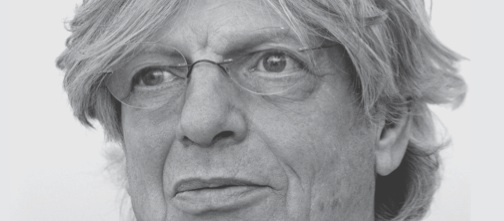A. de Swaan. The Global Coordination Problem: Collective Action among Unequal States, Historical Social Research 48 (1): 213-225, 2023
A. de Swaan. The Global Coordination Problem: Collective Action among Unequal States, Historical Social Research 48 (1): 213-225, 2023 The most pressing problems facing mankind today require for their solution some form of worldwide collective action at the level of states. In order to combat the global threat of the COVID-19 pandemic, wealthy countries must...
Read more ...
Abram de Swaan. The Killing Compartments. The Mentality of Mass Murder. 2014, Yale University Press
Abram de Swaan. The Killing Compartments. The Mentality of Mass Murder. 2014, Yale University Press An incisive exploration of why acts of mass annihilation take place and how people become mass killers By historical standards, the early years of the twenty-first century have been remarkably peaceful. Only rarely are people killed by their own kind,...
Read more ...
Abram de Swaan, ‘Constraints and challenges in building hospitals: The sociological view’, 2008
Abram de Swaan, 'Constraints and challenges in building hospitals: The sociological view', 2008 in: Cor Wagenaar (red.), Abram de Swaan, Stephen Verderber, Charles Jencks, Aaron Betsky, Roger Ulrich e.a., The Architecture of Hospitals, NAI publishers, Rotterdam, 2008. Architecture affects people. The architecture of hospitals contributes to the well-being and recovery of patients. This bold proposition...
Read more ...
Abram de Swaan & Marcel Van der Linden (Eds).Mutual Funds: then and here, now and there. Informal savings and insurance funds in the nineteenth century West and the present non-western world.
Abram de Swaan & Marcel Van der Linden (Eds).Mutual Funds: then and here, now and there. Informal savings and insurance funds in the nineteenth century West and the present non-western world. In:Abram de Swaan & Marcel van der Linden (Eds): Mutualist Microfinance. Informal Savings Funds from the Global Periphery to the Core? Amsterdam: Aksant, 2005, p....
Read more ...
Abram de Swaan. The European Void: the democratic deficit as a cultural deficiency. 2005
The European Void: the democratic deficit as a cultural deficiency. In: E. Busek (Ed.): Grenzen und Grenzüberschreitungen. Europäisch Forum Alpbach 2004. Wien: Verlag Österreich, 2005. pp. 379-387. ABSTRACT In the past half century, a peculiar political construct has emerged from the combination of European states: the European Union is more than a confederation but less than...
Read more ...
Abram e Swaan. Elite Perceptions of the Poor: reflections on a comparative research project. 2005
Elite Perceptions of the Poor: reflections on a comparative research project. In: Elisa P. Reis & Mick Moore (Eds): Elite Perceptions of poverty and inequality. London/New York: ZED Books, 2005. Pp. 182-194. Abstract Little is known about the ways in which the elites perceive the poor, especially in those societies where poverty is most prevalent. The poor...
Read more ...
About the misconception that the Dutch don’t have an identity of their own. De Gids, 167, nr. 4/5, Mai-June 2004
About the misconception that the Dutch don't have an identity of their own. De Gids, 167, nr. 4/5, Mai-June 2004, pp. 117-118. Special issue: Misunderstanding the Netherlands. The last people to ask about the Dutch identity are the Dutch. They make themselves smaller than they are and than they actually think they are. No other...
Read more ...
Endangered Languages. Sociolinguistic sentimentalism. European Review, Fall 2004.
Abram de Swaan. Endangered Languages. Sociolinguistic sentimentalism. European Review, Fall 2004. Abstract The movement to protect threatened languages from extinction is based on misleading metaphors and false sentiment. Of course, linguists should do their utmost to document languages that are in danger of being entirely abandoned. But whether speakers of such languages should continue to...
Read more ...
